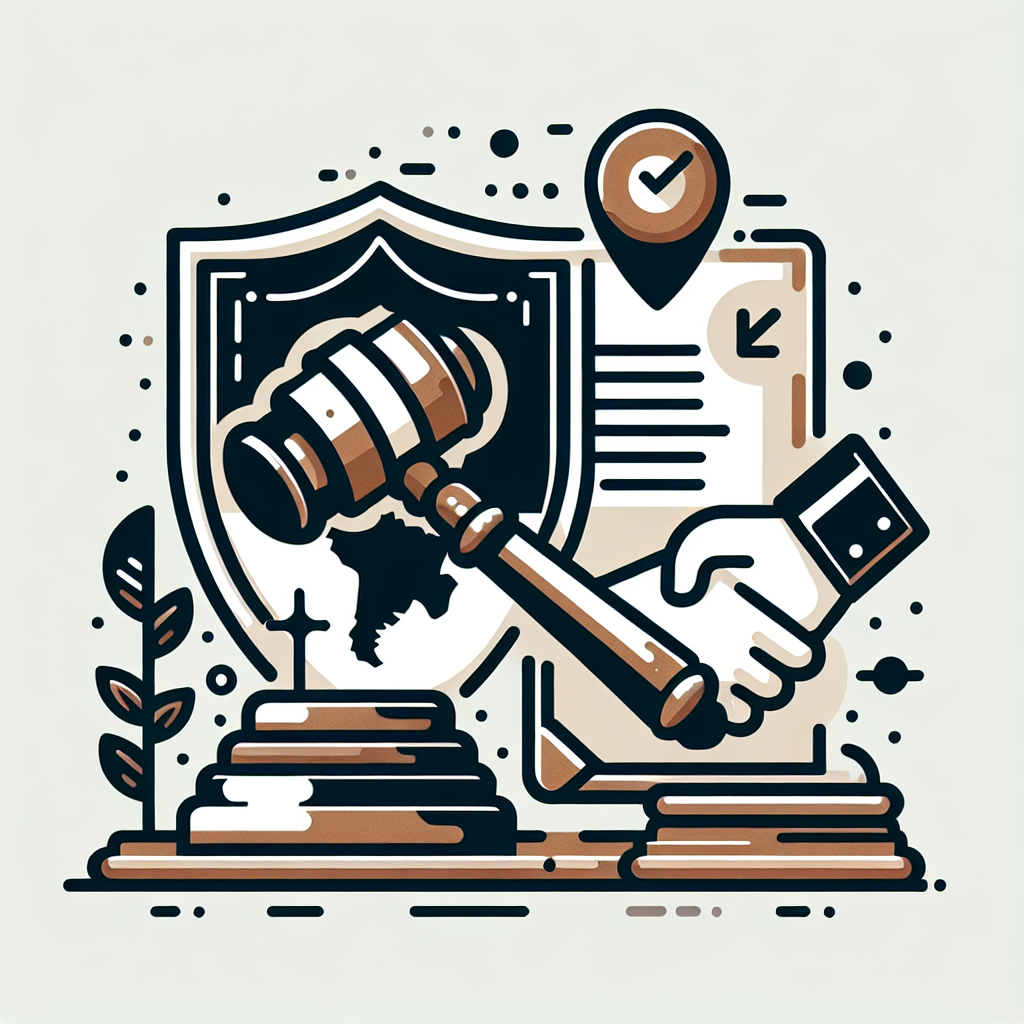The Role of Trademark Attorneys in International Trademark Registration
What is International Trademark Registration?
International trademark registration is the process of securing legal protection for a trademark across multiple countries or regions. For businesses operating globally, trademarks are vital assets that distinguish their products or services from competitors. Registering a trademark internationally ensures that a company’s intellectual property is safeguarded against unauthorized use, counterfeiting, or infringement in foreign markets.
However, the process is far from straightforward. Each country has its own trademark laws, regulations, and procedures, which can vary significantly. For example, while some nations recognize trademarks based on use, others require formal registration for legal protection. Additionally, language barriers, cultural differences, and the sheer complexity of navigating multiple jurisdictions can pose significant challenges. This is where international trademark registration becomes crucial—it provides businesses with a unified framework to protect their brand identity globally. Systems like the Madrid Protocol simplify the process by allowing businesses to file a single application to seek protection in multiple member countries. Despite these advancements, the process remains intricate, requiring expert guidance to avoid costly mistakes and ensure compliance.
Why Trademark Attorneys Are Essential for Global Trademark Protection
Trademark attorneys play a pivotal role in helping businesses navigate the complexities of international trademark registration. Their expertise ensures that companies can protect their intellectual property effectively while avoiding legal pitfalls. Here’s why their involvement is indispensable:
Expertise in Navigating International Trademark Systems
Trademark attorneys possess in-depth knowledge of international trademark systems, such as the Madrid Protocol, which streamlines the registration process across its 130+ member countries. They also understand regional systems like the European Union Intellectual Property Office (EUIPO) and the African Regional Intellectual Property Organization (ARIPO). These systems have unique requirements, and attorneys help businesses determine the most suitable approach based on their expansion goals.
For instance, an attorney can advise whether to file a single application under the Madrid Protocol or pursue individual registrations in specific countries. They also ensure that applications meet the legal standards of each jurisdiction, reducing the risk of rejection or delays. Without this expertise, businesses may struggle to navigate the nuances of international trademark systems, potentially jeopardizing their brand protection.
Mitigating Risks of Trademark Infringement
Trademark infringement can lead to costly legal disputes and damage a company’s reputation. Trademark attorneys mitigate these risks by conducting thorough trademark searches and assessments before filing applications. They analyze existing trademarks in target markets to ensure that the proposed trademark does not conflict with others. This process involves checking databases, reviewing industry-specific trademarks, and assessing potential risks.
For example, a business expanding into China may unknowingly choose a trademark that resembles an existing local brand. An attorney can identify such conflicts early, allowing the business to modify its trademark strategy and avoid infringement issues. This proactive approach saves time, money, and legal headaches.
Key Responsibilities of Trademark Attorneys in International Registration
Trademark attorneys handle a wide range of tasks during the international trademark registration process. Their responsibilities go beyond filing applications—they provide strategic guidance and legal representation to ensure successful outcomes.
Trademark Search and Clearance
One of the first steps in international trademark registration is conducting a trademark search and clearance. Attorneys perform comprehensive searches to determine whether a proposed trademark is unique and eligible for registration in multiple jurisdictions. This involves analyzing trademark databases, reviewing industry-specific trademarks, and assessing potential conflicts.
For example, if a business plans to expand into Europe, an attorney will check the EUIPO database to ensure the trademark is not already registered or in use. They also evaluate the trademark’s distinctiveness, as generic or descriptive marks may face rejection. By identifying potential issues early, attorneys help businesses refine their trademark strategy and avoid costly disputes.
Filing and Managing Applications
Trademark attorneys prepare, file, and manage trademark applications across different countries or regions. This process involves drafting detailed descriptions of the trademark, specifying the goods or services it covers, and ensuring compliance with local regulations. Attorneys also monitor the progress of applications, addressing any objections or requests for additional information from trademark offices.
For instance, if a trademark office in Japan requests clarification on the scope of goods covered by a trademark, the attorney will respond promptly to avoid delays. They also coordinate renewals and updates to ensure ongoing protection. Managing applications across multiple jurisdictions requires meticulous attention to detail, which attorneys excel at.
Handling Legal Disputes and Opposition
During the registration process, trademarks may face opposition or legal challenges from third parties. Trademark attorneys represent clients in these disputes, preparing legal arguments and negotiating settlements when necessary. They also handle appeals if a trademark application is rejected.
For example, if a competitor in Germany opposes a trademark application, claiming it infringes on their existing mark, the attorney will gather evidence to refute the claim and defend the client’s rights. Their expertise in trademark law ensures that businesses can navigate disputes effectively and protect their intellectual property.
Challenges in International Trademark Registration
International trademark registration is fraught with challenges, ranging from legal complexities to cultural differences. Trademark attorneys play a crucial role in helping businesses overcome these obstacles.
Differences in Trademark Laws Across Countries
Trademark laws vary significantly from one country to another. For example, the United States follows a “first-to-use” system, while China operates on a “first-to-file” basis. These differences can impact the registration process and the level of protection granted. Attorneys help businesses understand these variations and adapt their strategies accordingly.
Additionally, some countries have unique requirements, such as mandatory translations or specific formatting for applications. Attorneys ensure that businesses comply with these regulations, reducing the risk of rejection or delays.
Language and Cultural Barriers
Language and cultural differences can complicate trademark registration. For instance, a trademark that is acceptable in one country may have negative connotations in another. Attorneys conduct linguistic and cultural assessments to ensure that trademarks resonate positively with target audiences.
They also address language barriers by preparing applications in the required languages and communicating with local trademark offices. This expertise is invaluable for businesses expanding into diverse markets.
Benefits of Hiring a Trademark Attorney for International Registration
Working with a trademark attorney offers numerous advantages, making the registration process smoother and more effective.
Cost-Effectiveness in the Long Run
While hiring an attorney involves upfront costs, it can save businesses money in the long run. Attorneys prevent costly mistakes, such as filing incomplete applications or choosing trademarks that infringe on existing ones. They also help businesses avoid legal disputes, which can be expensive and time-consuming.
Strategic Trademark Portfolio Management
Trademark attorneys assist businesses in building and managing a strong trademark portfolio. They provide strategic advice on which trademarks to register, where to seek protection, and how to prioritize registrations based on business goals. This proactive approach supports global expansion and ensures that intellectual property is safeguarded.
Tips for Choosing the Right Trademark Attorney
Selecting the right trademark attorney is crucial for successful international registration. Here are some tips to guide businesses in making the right choice:
Key Qualifications to Look For
When choosing a trademark attorney, look for qualifications such as experience in international trademark law, familiarity with systems like the Madrid Protocol, and a track record of successful registrations. Certifications from organizations like the International Trademark Association (INTA) can also indicate expertise.
Questions to Ask Before Hiring
Before hiring an attorney, ask questions such as:
- How many international trademark registrations have you handled?
- Do you have experience with trademarks in my target markets?
- What is your approach to managing trademark portfolios?
- Can you provide references from previous clients?
These questions help businesses assess whether the attorney meets their needs and has the necessary expertise.
The Future of International Trademark Registration and the Role of Attorneys
As globalization and technology continue to evolve, the field of international trademark registration is undergoing significant changes. Trademark attorneys are adapting to these trends to better serve their clients.
Technology and Automation in Trademark Processes
Advancements in technology are streamlining trademark registration. Tools like AI-powered trademark search engines and automated application systems are making the process faster and more efficient. Attorneys are leveraging these tools to enhance their services, ensuring accuracy and reducing turnaround times.
Adapting to Globalization and E-Commerce Growth
The rise of e-commerce and online marketplaces has increased the need for international trademark protection. Trademark attorneys are helping businesses adapt to this shift by developing strategies to protect their brands in digital spaces. This includes addressing issues like domain name disputes and counterfeit products.
Get a Free Case Evaluation
Tell us your details and we'll get right back to you.
Blog Contact Form
We will get back to you as soon as possible.
Please try again later.
Milano IP is a law firm specializing in patents, trademarks, copyrights, and trade secrets. We protect your innovations, ensuring your ideas are secure. "Where Innovation Meets Protection" is our promise to support your business growth.
Locations
Menu
Latest news
Mario T Milano Law, LLC




